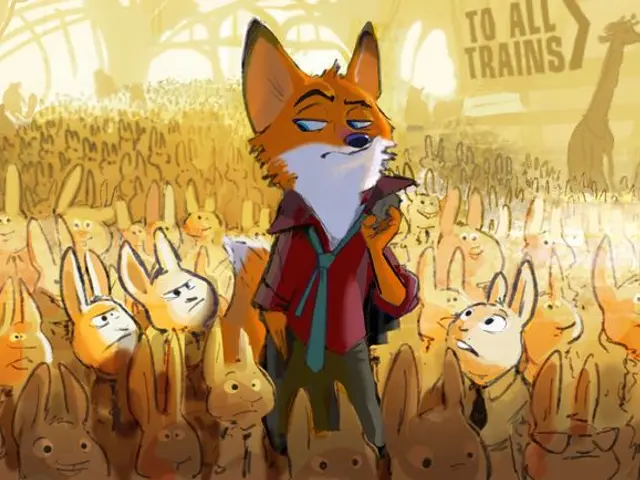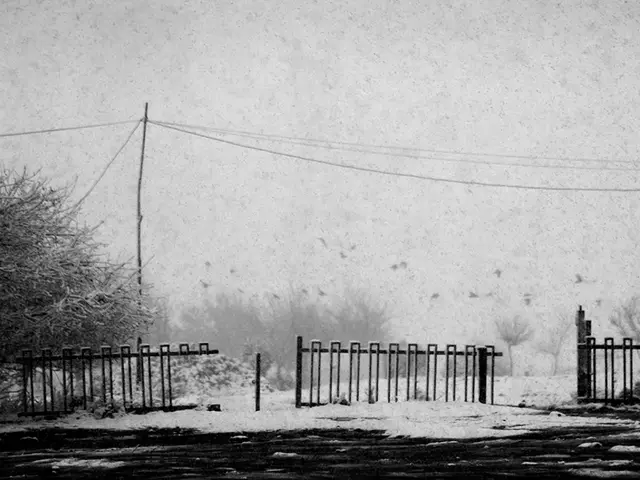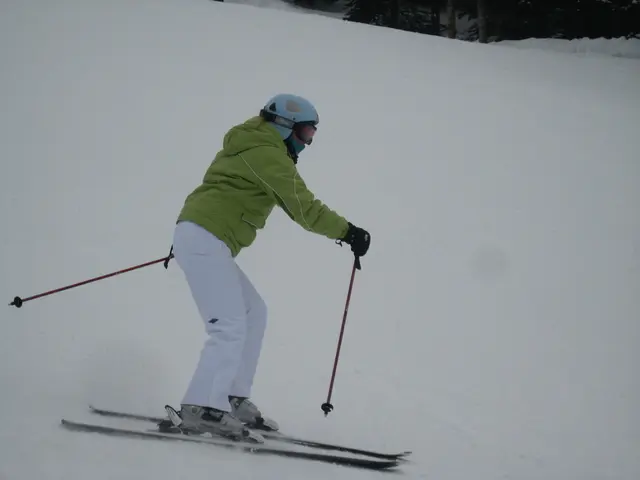Down in the Dumps but Staying Afloat: The Unsteady New German Coalition
"Negative omens accompany this initiation"
The recently sworn-in federal government, a dubious union of CDU/CSU and SPD following the 2025 elections, is teetering on shaky ground despite help from the opposition for the controversial chancellor election. Can the coalition partners trust each other moving forward? Federal Interior Minister Alexander Dobrindt is attempting to keep spirits high on Illner.
Our new administration has been in the hot seat since Tuesday. However, the incoming was rougher than expected. A federal chancellor election has never been held in the second round. How strong is Friedrich Merz, the new Chancellor, now? This is a topic that Maybrit Illner and her guests will examine on Thursday evening.
Dobrindt now seems relieved, expressing that "from an undesirable, unwanted, and unprecedented situation, one has demonstrated the ability to work together constructively and trustingly to resolve a problem and meet a challenge, with the involvement of the Greens and the Left." While emphasizing the difficulties, Dobrindt finds this a positive sign that challenges can be conquered.
Green Party faction leader Katharina Dröge, on the other hand, has a more somber view. She suggests that the dubious start signals a coalition initially on unstable legs. She emphasizes the importance of internal dialogue among the party leaders to prevent future incidents of this nature. Dröge is a realist. "This start is under a bad omen, and this coalition is initially on shaky legs. That's something they have to work on."
Political scientist Julia Reuschenberg believes the coalition has picked up a couple of scratches but insists, "What's important is that everything went smoothly from a democratic standpoint." With the coalition agreement, titled "Responsibility for Germany," the new leaders have a shared vision for the future, prioritizing economic stability, tax cuts, bureaucracy reduction, infrastructure investment, and digital transformation[2][5].
No Cooperation with the Left – Unless Necessary
Thorsten Frei, the new Chancellor's Office chief, has sparked debate over reconsidering the incompatibility decision regarding the Left in light of current political circumstances. Dobrindt promptly shuts down this idea, citing no change in their stance. Despite the lack of a two-thirds majority in the Bundestag, Dobrindt rules out joint legislative initiatives with the AfD. Cooperation with the Left is possible for procedural decisions but cannot come at the expense of previously made decisions[1].
The coalition must handle the AfD with caution amid growing demands for clarification on their approach. Green Party leader Droge believes the Union shrouds the issue in uncertainty, pointing out diverging perspectives within the party. "My opinion is: There are two currents in the Union. One belongs to Jens Spahn, and Jens Spahn is more in the direction of the AfD than many others in the Union whom I also rely on." Drojge calls for transparency and clarity on the Union's dealings with the AfD. Dobrindt defends those within the party, highlighting a commitment to the rule of law and party principles[1].
Overtime for Migration Policy
Dobrindt has already made his mark on migration policy, proposing significant strengthening of border controls, leading to increased overtime hours (up to 20 extra hours per week) for federal police officers on the frontlines[3]. While border controls are reinforced, critics argue that train station security may be compromised[3]. Another controversial measure Dobrindt has introduced allows the police to reject asylum applications made at the border. This policy does not apply to vulnerable groups, such as pregnant women, children, and those considered to be in need of protection[3].
Despite disagreements and initial trust issues, both parties agree that the migration problem weighs heavily on Europe and is particularly concerning for Germany due to its magnetic draw[3]. Emphasizing the gravity of the situation, Dobrindt asserts, "We must correct the situation." Katharina Droge takes issue with the government's approach, accusing them of breaking European law in their handling of border asylum rejections[3].
Dobrindt stands firm, clarifying that the aim is to reject those entering Germany from a safe third country, as they have already reached at least one country too far. Moreover, these individuals are not being persecuted in neighboring countries, necessitating solidarity to secure the European system's functional integrity[3].
Sources: ntv.de, Spiegel Online
- Alexander Dobrindt
- Alliance 90/The Greens
- The Left
- CSU
- CDU
- Migration
- Alexander Dobrindt, from the CSU, has expressed relief as the coalition, consisting of CDU/CSU and SPD, has demonstrated the ability to work together constructively, with the involvement of the Greens and the Left, despite arocky start.
- Green Party leader Katharindra Dröge, however, views the initial start of the coalition as somewhat unstable, emphasizing the importance of internal dialogue among party leaders to prevent future incidents of this nature.
- In the realm of migration policy, Dobrindt has proposed significant strengthening of border controls, leading to increased overtime hours for federal police officers, yet critics argue that this may compromise train station security.
- The European Union and EC countries face a pressing migration problem, particularly Germany due to its magnetic draw. Dobrindt asserts that it's crucial to correct the situation, but Katharina Dröge accuses the government of potentially breaking European law in their handling of border asylum rejections.








